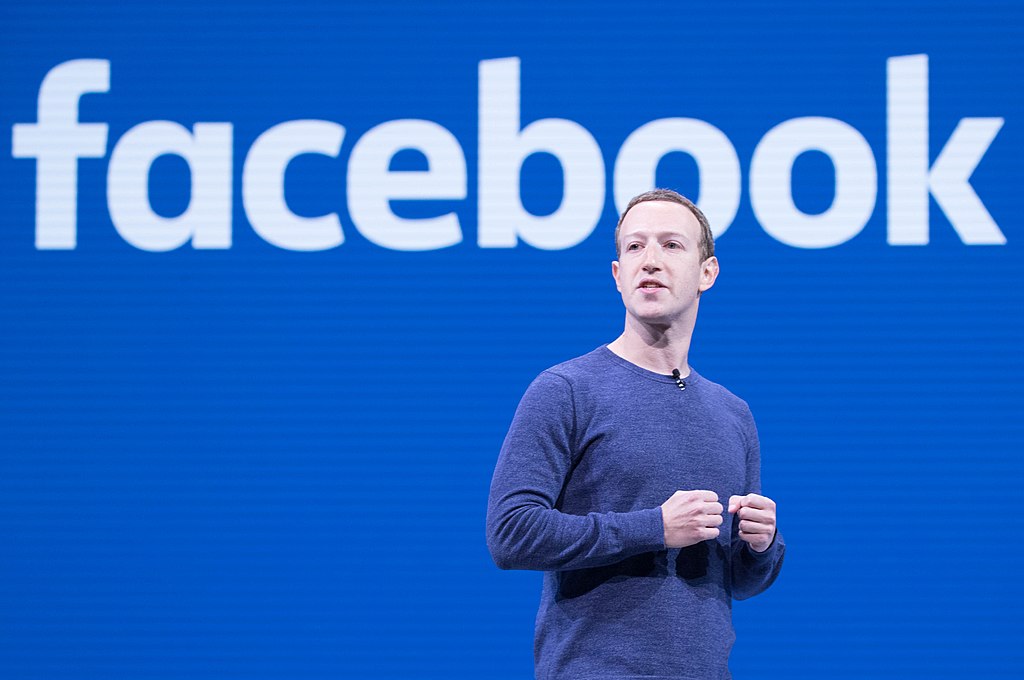It’s official. Facebook is changing its name to Meta. Who cares about its massive ongoing scandal and the equally massive implications of it all when you have a cool new name. Mark Zuckerberg made the rebranding announcement during the recent Facebook Connect presentation
To be clear, this is only a company name change. You’re not going to see any of its apps renamed to Meta. The new name is a reflection of FacebookMeta’s focus on building the metaverse. What’s the metaverse you ask? It’s the idea of a more interconnected digital world that extends beyond the typical digital interactions we experience today. Facebook says that “The ‘metaverse’ is a set of virtual spaces where you can create and explore with other people who aren’t in the same physical space as you.”
Think VR, blockchain, smartwatches, avatar-enabled workspaces, more virtual goods marketplaces, all part of a massive ecosystem. Though in reality, there’s no textbook definition of what it all translates to. As The Verge puts it, Facebook’s metaverse is “one part definition, one part aspiration, one part hype”. Though some could argue that the metaverse already exists in some sense.

Mind you, the metaverse isn’t a uniquely Facebook thing. The term was first used in Neal Stephenson’s 1992 Snow Crash novel. In it, the book refers to the metaverse as a 3D virtual world full of avatars of real people. Then there’s perhaps the more famous example, Ready Player One. But one thing these share in common is that both of the stories take place in a dystopian future. With Facebook’s track record, that may very well be an apt analogy.
How Facebook is going Meta
The company is going hard at its metaverse vision and its Meta rebranding is a clear indication of that. But Zuckerberg is already looking to make headway. Facebook put in at least USD 10 million on Facebook Reality Labs, its metaverse department that’s supposed to create AR and VR hardware, software, as well as content.
Facebook already has a VR sandbox universe called Facebook Horizon. Here you can build your own environments and games, socialize and visit other user-explored landscapes. It’s basically Facebook’s take on Second Life, and it’s the critical software for its metaverse plans.
Then there’s Project Cambria (no, nothing to do with Cambridge Analytica). It’s a high-end mixed reality headset. Project Cambria will be equipped with face and eye-tracking which would produce more realistic avatars when in use. Nazaré is another similar product in the works. It’s a pair of AR glasses meant to look like normal glasses. Though it’s years away from coming to life.

One leaked photo even shows that the company is working on an Apple Watch competitor. Thus further reinforcing the role of hardware in the grand scheme of things for Facebook.
The bigger problem in play
But don’t let all the Meta hype fool you. The announcement comes at a time when Facebook is dealing with a barrage of controversies (again) that has caught attention all over the world. Dubbed “Facebook Papers“, whistleblower Frances Haugen leaked documents that offer a closer look at the company’s operations. These documents paint a very grim picture and reflect how problematic things really are on the inside.
Apple threatened to ban Facebook over human trafficking content
Back in 2019, a BBC report revealed that domestic workers were sold via Instagram and other apps. Here, sellers even encouraged buyers to mistreat the workers. Apple escalated the issue, effectively threatening to remove its apps from the iOS store.
Zuckerberg’s personal interventions
Facebook is no stranger to amplifying hate speech and other harmful content, particularly considering the platform’s role during the 2018 Digana riots. One of the biggest enabling features is the newsfeed. Bloomberg recently reported how problematic the feed really is. Of course, its civic integrity team had ideas in mind to make Facebook less harmful. But this team was often overruled, sometimes by Zuckerberg himself.
High profile accounts have a different set of content standards
It was revealed that Facebook treats high-profile accounts differently. Back when Trump made false and inflammatory statements about a number of things, only a few were removed by the tech giant. Why? For the simple reason to avoid a public relations backlash from celebrities and other high-profile accounts.
Facebook knows how toxic Instagram is for teen girls
Back in September, the Wall Street Journal reported findings of Facebook’s internal research that included data on how Instagram affects young teenage girls. The research linked Instagram with anxiety, depression, and body image issues among other things.
However, this is merely a glimpse of the trove of documents. Facebook Papers has put the spotlight on everything from Facebook’s hiring crisis to the rampart vaccine misinformation. Mind you, all of this is while the Federal Trade Commission has launched an antitrust lawsuit last year.
But what does any of this have to do with Facebook’s metaverse ambitions? Everything. Facebook is a fundamentally flawed platform as we’ve seen time and time again. It’s one that keeps amplifying harmful content and general discourse all over the world. So, the fact that Facebook is extending its reach further amidst all of this, doesn’t bode well for the future.
A rocky Meta future awaits
These issues only get worse in this part of the world, particularly when localized contexts come into play. In Sri Lanka, we’ve seen how the lack of Sinhala content moderation and Facebook’s own lackluster Community Standards approach has impacted different communities in the country. Whether it was memes body-shaming women in cosplay or content that amplifies racial violence, the company has often failed to address its many shortcomings around this area.
Then there’s the fact that platforms like WhatsApp, Instagram, and Facebook are deeply embedded in our digital lives. We’ve seen this with how Facebook’s recent outage impacted many of us around the world. So, the unfortunate truth is that amidst all of this, removing yourself from the controversial tech giant is going to be a hard sell for many.

Now add metaverse into the mix and you’ve got a recipe for disaster in epic proportions. Those dystopian futures are now starting to look less like science fiction and more like a premonition. After all, no amount of exciting new technologies and implementations will make amends for the glaring problem at hand. Neither will be slapping Meta for a company name for that matter.







GIPHY App Key not set. Please check settings